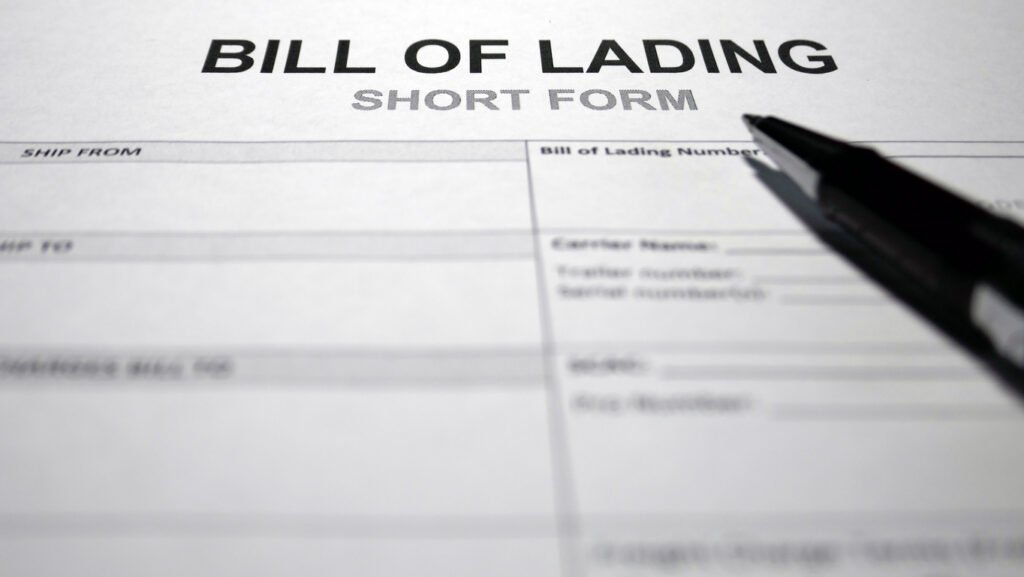In international trade, a Bill of Lading (B/L) plays a crucial role. This document ensures that your cargo moves safely and legally across borders. Importers, exporters, and logistics providers rely on it to avoid delays, protect ownership, and resolve disputes.
🧾 What Is a Bill of Lading?
A Bill of Lading serves three essential functions:
- Acts as Proof of Shipment – The carrier confirms receipt of goods from the shipper.
- Defines the Contract of Carriage – It outlines the agreement between the shipper and the carrier.
- Serves as a Title of Goods – It allows the transfer of ownership while cargo is in transit.
Because of these roles, it becomes a legal and financial safeguard in logistics operations.

📌 Types of Bills of Lading
Understanding the types of Bills of Lading helps you choose the right one for your shipment:
1. Straight Bill of Lading
Use this for shipments delivered directly to a specific recipient. It is non-transferable.
2. Order Bill of Lading
This version allows transfer of ownership while goods are en route, making it ideal for trade and resale.
3. Seaway Bill
This digital alternative simplifies transactions but does not act as a title document.
🚚 Why the Bill of Lading Matters
The B/L is not just a formality. It brings significant benefits:
- Legal Protection: It prevents unauthorized release of goods.
- Customs Compliance: Customs authorities require it to clear international shipments.
- Financial Security: Banks use it as a key document for letters of credit.
- Transfer of Ownership: It allows businesses to sell goods while still in transit.
Therefore, managing this document correctly reduces risks and ensures smoother operations.
✅ Best Practices for Managing a B/L
To avoid costly issues, follow these practices:
- Review all details carefully, including cargo description and consignee data.
- Issue and send the B/L on time to prevent shipment holds.
- Keep copies for auditing and legal compliance.
- Partner with reliable experts like ELI Logistix to manage your documents efficiently.
In addition, train your team to understand the implications of each type of B/L.
A Bill of Lading is much more than a form—it’s a critical tool in international logistics. When you understand its function and handle it properly, you protect your goods, ensure legal clarity, and maintain control over your operations. At ELI Logistix, we manage all documentation with precision, so your cargo arrives securely and on time.
